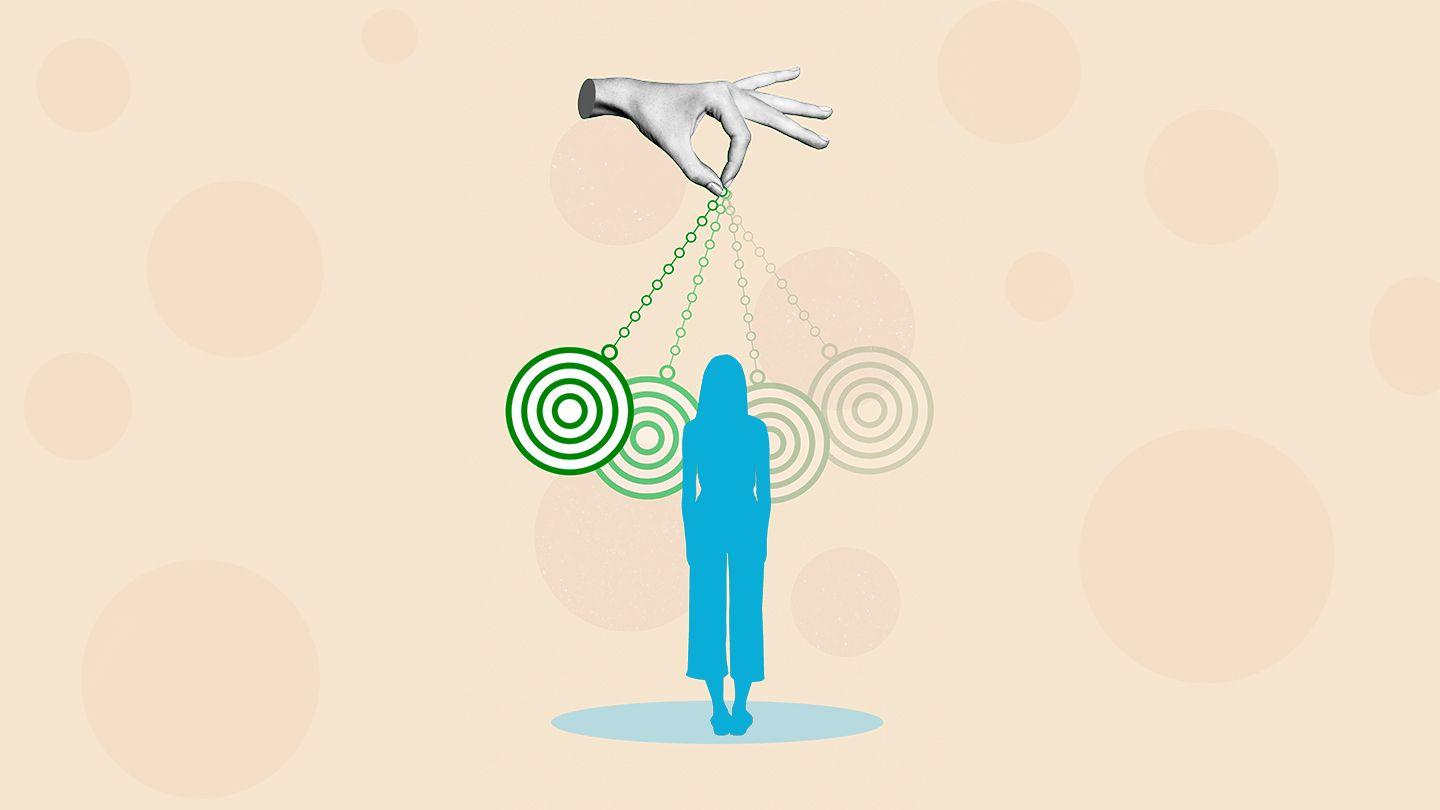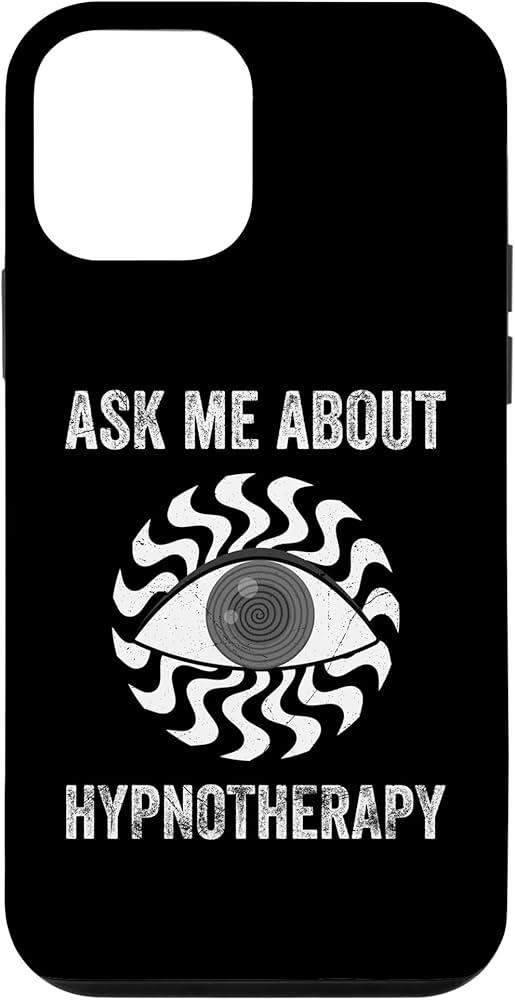Unveiling the Mind’s Secret Dance: Signs You Were Hypnotized Hypnosis, often surrounded by an aura of mystery and intrigue, has long fascinated both the scientific community and the public alike. While pop culture often paints a picture of dramatic stage performances and mind control, the reality of hypnosis is far more nuanced and subtle. Have you ever felt an unshakeable sense of calm wash over you during a guided relaxation session, or perhaps experienced a moment where time seemed to dissolve into thin air while listening to soothing tones? These intriguing sensations could be signs that you’ve slipped into a hypnotic state, even if you didn’t realize it at the time. In this article, we will explore the telltale signs of hypnosis, shedding light on this fascinating phenomenon that lies at the intersection of psychology and self-awareness. Whether you’re a seasoned practitioner or simply curious about the depths of your own mind, understanding the indicators of hypnosis can enhance your appreciation for this age-old practice and its potential to unlock hidden aspects of your consciousness. Join us as we embark on a journey to decipher the signs you were hypnotized that reveal when you’ve been gently guided into the depths of your own psyche.

Understanding the Subtle Traces of Hypnosis in Your Mind and Body
Hypnosis is often shrouded in mystery, leaving many to wonder how to identify its subtle effects on the mind and body. Several signs you were hypnotized may emerge during and after a hypnotic experience, revealing just how deep your state of relaxation and suggestibility was. Common indicators include:
- Altered Perception of Time: You may feel as if time has sped up or slowed down, making minutes pass like seconds.
- Heightened Awareness: While in hypnosis, your awareness can become more acute, leading to a profound connection with your thoughts and emotions.
- Physical Sensations: Responsibilities and tension often dissipate, causing sensations like heaviness or lightness in your limbs.
Moreover, the aftereffects can linger, subtly influencing your mood and behavior. Pay attention to these potential traces of hypnosis:
- Increased Calm: Many individuals report an enduring sense of peace and tranquility following a session.
- Memory Variances: You might recall experiences or insights with surprising clarity or, conversely, find gaps in your memory.
- Emotional Release: Hypnosis may unearth unresolved feelings leading to unexpected emotional shifts.
To visualize the effects more clearly, consider the following comparison table that outlines various signs of hypnosis and their manifestations:
| Sign of Hypnosis | Manifestation |
|---|---|
| Altered Perception of Time | Minutes felt like seconds or hours |
| Heightened Awareness | Sharp focus on inner thoughts |
| Physical Sensations | Feelings of heaviness or lightness |
| Increased Calm | Lasting peace post-session |
| Memory Variances | Clear memories or gaps |
| Emotional Release | Shift in emotions or feelings |

Recognizing the Emotional and Physical Responses to Hypnotic States
When delving into the realm of hypnosis, it’s essential to recognize the various emotional and physical responses that may surface during and after the experience. Individuals often report feelings of deep relaxation, heightened awareness, or even disconnection from their surroundings. As the mind enters a hypnotic state, the body can react in unexpected ways, showcasing the profound link between mind and body. Many people experience a tingling sensation, heaviness in the limbs, or a feeling akin to floating—signs that suggest a significant shift in consciousness.
More questions that you can explore as signs you were hypnotized
How do you know if you have been hypnotised?
Can you be hypnotized and not know it?
Are you aware when you’re hypnotized?
What are symptoms of hypnosis?
In addition to the immediate sensations, some emotional responses may emerge in the aftermath of hypnosis. Many individuals report feelings of calmness and clarity of thought, often finding themselves more introspective and open to self-discovery. Others may experience emotional releases, expressing feelings they had previously buried. To illustrate these varied responses, consider the following table that categorizes common reactions:
| Response Type | Common Responses |
|---|---|
| Physical | Relaxation, Tension Release, Tingling Sensations |
| Emotional | Calmness, Emotional Release, Enhanced Self-Awareness |
Decoding Memory Gaps: What They Indicate About Your Hypnotic Experience
Memory gaps are a fascinating aspect of the hypnotic experience, often leading individuals to question the boundaries of consciousness. When someone emerges from a trance and is unable to recall specific details or events that transpired, it can indicate a deep level of suggestibility. This occurrence, commonly referred to as post-hypnotic amnesia, suggests that the individual entered a profound state of relaxation and heightened focus, which may have allowed them to bypass conventional memory processing. Such gaps might also reveal the extent to which the subconscious mind absorbed suggestions that were not immediately accessible to the conscious mind.
Understanding these memory lapses can enhance one’s analysis of their hypnotic journey. Not only do they serve as a marker for how fully someone immersed themselves in the experience, but they can also shine a light on areas where the subconscious is still processing information. It’s essential to consider factors that may contribute to these memory gaps, such as:
- Depth of trance: The deeper the trance, the more significant the memory gaps are likely to be.
- Type of suggestions given: Complex or metaphorical suggestions may result in less conscious recollection.
- Individual differences: Each person’s cognitive processing is unique, affecting how memories are stored and retrieved.
Practical Tips for Reflecting on and Navigating Hypnotic Trances
When navigating the depths of hypnotic trances, self-awareness and reflection become invaluable tools. Here are some practical tips to help you identify when you’ve entered a trance state and how to better manage your experience:
- Journal Your Experience: After a hypnotic session, take time to jot down your feelings and sensations. Documenting your experience can help you recognize patterns and signs of trance.
- Practice Grounding Techniques: Use techniques such as deep breathing or focusing on your senses to remain connected to your surroundings after emerging from a trance.
- Set Clear Intentions: Before hypnosis, establish specific goals. This clarity can keep you anchored and focused during the experience.
Another effective approach is to engage in conversations with an experienced hypnotist or to seek feedback from trusted individuals. Understanding the nuances of your trance can enrich your practice tremendously. Consider the following table for additional insights:
| Signs of Hypnosis | How to Navigate |
|---|---|
| Altered Perception of Time | Use a timer to stay aware of your session duration. |
| Increased Suggestibility | Reflect on suggestions given and their implications. |
| Deep Relaxation | Practice mindfulness to maintain awareness of your body. |
Q&A
Signs You Were Hypnotized: A Q&A Guide
Q: What exactly is hypnosis?
A: Hypnosis is a state of focused attention, heightened suggestibility, and deep relaxation. It often leads individuals to be more open to suggestions, which can be utilized for therapeutic purposes or performance enhancement.
Q: How can I tell if I have been hypnotized?
A: There are several signs you might notice. Common indicators include a feeling of deep relaxation, a sense of detachment from your surroundings, or experiencing altered perceptions of time. You might also notice difficulty in recalling specific moments from the session, or perhaps feeling as if your limbs are heavy or loose.
Q: Is it possible to remember everything that happened during hypnosis?
A: Not necessarily. Many people find that certain details or experiences during hypnosis are hazy or lost to memory. This isn’t unusual; the brain may prioritize what to retain or forget in this unique state.
Q: Can I feel emotions differently if I’ve been hypnotized?
A: Yes! Emotional responses may feel more intense or even unrecognizable. Some individuals report experiencing a surge of emotions, whether that’s joy, sadness, or even laughter. This can be part of the process, allowing you to explore feelings that were previously buried.
Q: What physical sensations might I experience if I’m hypnotized?
A: Common physical signs include feeling light-headed or weightless, a sensation of warmth or energy coursing through your body, or even tingling in your extremities. You may also notice involuntary bodily responses, like deep breathing or muscle relaxation.
Q: Are there cognitive signs that indicate I was hypnotized?
A: Absolutely! Many people report a sense of clarity or heightened awareness while in a hypnotic state. However, there may also be bouts of confusion or mental fog when trying to recall the session afterwards. Additionally, some have difficulty concentrating post-hypnosis.
Q: What can I do if I think I’ve been hypnotized but don’t remember much?
A: This is completely normal! You can try to relax and reflect on your feelings and sensations after the session. Keeping a journal about your thoughts or discussing the experience with the hypnotist can sometimes help recover lost memories or insights.
Q: Is being hypnotized the same as being asleep?
A: No, though it may feel similar. During hypnosis, you are in a relaxed state and may have your eyes closed, but you’re typically aware of your surroundings. Unlike sleep, you can often respond to suggestions and participate in the session actively.
Q: How can I tell if my experience was beneficial?
A: Many report feeling a sense of calm or relief after a hypnotic session, even if they can’t recall everything that happened. Additionally, if you notice positive changes in behavior, thoughts, or emotions following the experience, it’s likely that the hypnosis was effective.
Q: Can I be hypnotized against my will?
A: No. Hypnosis requires the subject’s consent and cooperation. If you are resistant or unwilling, it’s unlikely that a hypnotist can induce a hypnotic state. Your own mindset is a powerful factor in the process. Understanding the nuances of your hypnosis experience can provide valuable insights into your mental and emotional landscape. While not all experiences may be memorable, the effects can still ripple through your daily life in meaningful ways.
Wrapping Up
As we wander through the realms of consciousness, the experience of hypnosis often blurs the boundaries between reality and the depths of our own minds. By recognizing the signs that suggest you may have been under the spell of this intriguing state, we can gain a deeper understanding of ourselves and the power of suggestion. Whether it was a fleeting moment of disorientation, an unexpected burst of creativity, or a lingering sense of calm, these indicators serve as a reminder of the mind’s wondrous abilities. In a world that often feels overwhelmingly chaotic, hypnosis can offer a unique lens through which to explore our inner landscapes. As you reflect on your own experiences, remember that each sign holds the potential for insight, growth, and a greater appreciation of the fascinating interplay between consciousness and subconsciousness. The journey through the mind is ever-evolving, and recognizing these signs is but one step along that winding path. Embrace the mystery, and who knows what revelations may still await you in the shadows of your own thoughts.
Dr. John Renoldson is a distinguished professor of Clinical Research Hypnotherapy He holds a PhD in Clinical Psychology and specializes in hypnotherapy and scientific research to enhance therapeutic outcomes. Dr. Renoldson has authored numerous peer-reviewed articles on the efficacy of hypnosis in treating conditions.




